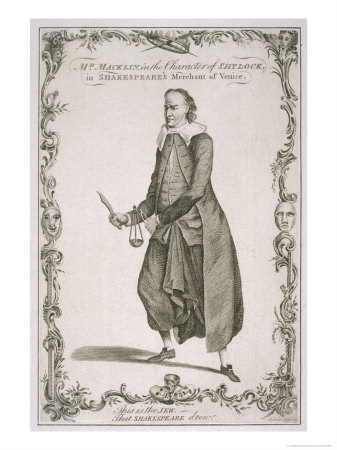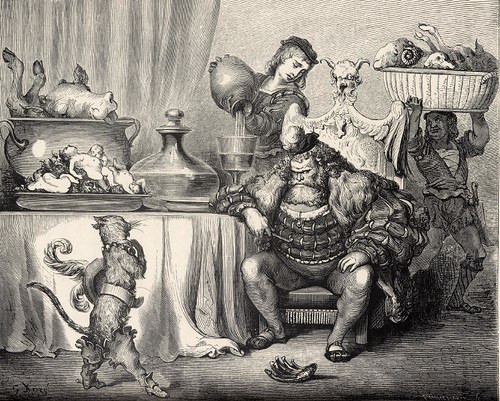 Some English literature professor from Alabama just had a wonderful idea: deleting all the “Nigger” words (more than 200) from Huckleberry Finn and replacing them by “Slaves.
Some English literature professor from Alabama just had a wonderful idea: deleting all the “Nigger” words (more than 200) from Huckleberry Finn and replacing them by “Slaves. Why didn’t we think of that before? Yeah, every time a word bothers you in a literary work just delete it and replace it by something more placating, less intrusive.
You don’t want people, the “general readers” as this “professor” calls us (by the way, who is a general reader?), to try to understand why Twain, although furiously fighting racism and bigotry in his book, used this derogative word.
You don’t want people to try to understand how White people for example, viewed others in the 1880s.
You don’t want people, when reading, to make the effort to really read. That is to say, to replace the book in its historical context, to distinguish between what the author thought and what the society in which he lived generally thought and so forth…and if the writer shared his time’s prejudices, what it tells us about that time.
No, no real (English) literature professor would want his students to do so. Please, no complications. Just delete that annoying word. Just pretend that slavery, discrimination, racism, the KKK and so forth didn’t exist. That racism today doesn't exist. That we live in such a wonderful world that we don’t need to care about how our ancestors thought and viewed the world.
In order to help that genial English literature professor, I came up with a list and a few examples of literary works that would also need a bit of trimming:
 The Merchant of Venice, of course, would need a great deal of trimming: all the Jewish characters, and especially Shylock, reflect Shakespeare’s Christian society view on Jews, which is not flattering, to say the least (all the “usual” anti-Semitic stereotypes are there: greed, ruthlessness, cruelty, a taste for revenge, cunningness, hate of the Christians…). So, let’s not hesitate, let’s delete them from the drama! And let’s pretend that anti-Semitism never existed in Shakespeare’s time or in any other time. Remember, the ground rule is: Don’t force your “general readers” and “young readers” to REALLY READ.
The Merchant of Venice, of course, would need a great deal of trimming: all the Jewish characters, and especially Shylock, reflect Shakespeare’s Christian society view on Jews, which is not flattering, to say the least (all the “usual” anti-Semitic stereotypes are there: greed, ruthlessness, cruelty, a taste for revenge, cunningness, hate of the Christians…). So, let’s not hesitate, let’s delete them from the drama! And let’s pretend that anti-Semitism never existed in Shakespeare’s time or in any other time. Remember, the ground rule is: Don’t force your “general readers” and “young readers” to REALLY READ.
Tintin in Congo. Yes, this one also needs a huge amount of cleaning: published in the 1930s, the “comic” book offers all the racist and ethnocentric stereotypes that were common at that time (and Hergé shared them all, without any doubt): Africans are showed as idiotic (they speak “petit nègre”, a very bad French), lazy, coward, gullible and their physical traits are, of course, very caricatural (see picture). Actually, there was a debate not so long ago about whether the original version of the book should still be published, or if it should be published but with a foreword for the readers to make them aware of the stereotypes or if only the expunged version (that Hergé published way later, in the 70s) should be published. To that, I would say, let’s apply that Alabama’s professor wise rule: let’s redraw and rewrite the comic book! Let’s forget about the first version! Colonialism didn’t exist!  Madame Bovary. Yes, Flaubert’s masterpiece also needs some rewriting, as well as most of the 19th century French literature. Look at the way women are pictured through the novel main character: selfish, ignorant, stupid, concupiscent, heretic (she commits suicide), amoral and so forth…yes, Flaubert’s portrait of a contemporary bourgeoise woman is quite offensive for the sexe faible. Let’s erase that character from the book and rename it Monsieur Bovary. After all, who cares about sexism?!
Madame Bovary. Yes, Flaubert’s masterpiece also needs some rewriting, as well as most of the 19th century French literature. Look at the way women are pictured through the novel main character: selfish, ignorant, stupid, concupiscent, heretic (she commits suicide), amoral and so forth…yes, Flaubert’s portrait of a contemporary bourgeoise woman is quite offensive for the sexe faible. Let’s erase that character from the book and rename it Monsieur Bovary. After all, who cares about sexism?! Splendeurs et misères des courtisanes. One of Balzac’s most intriguing characters is Vautrin, aka Jacques Collin, one of the first gay characters of the “great” literature. His homosexuality is one facets of his complex personality: Vautrin is a dark character, manipulative, very intelligent, extremely strong and persistent, a débauché, and a pederast, as gays used to be called. Not really your typical next-door overfriendly gay neighbor. Because this character could trouble and make young gay readers feel guilty about their sexual orientation, I suggest erasing the character from all Balzac’s novels. Enough with the gay stereotypes! They have enough on their plates already!
Splendeurs et misères des courtisanes. One of Balzac’s most intriguing characters is Vautrin, aka Jacques Collin, one of the first gay characters of the “great” literature. His homosexuality is one facets of his complex personality: Vautrin is a dark character, manipulative, very intelligent, extremely strong and persistent, a débauché, and a pederast, as gays used to be called. Not really your typical next-door overfriendly gay neighbor. Because this character could trouble and make young gay readers feel guilty about their sexual orientation, I suggest erasing the character from all Balzac’s novels. Enough with the gay stereotypes! They have enough on their plates already!  Le Chat Botté. Enough with the Ogre bashing! How come the Ogre community is always represented by dumb, stupid, vicious characters? Look at what happens to that Ogre in Perrault’s tale: although he is a powerful magician (he can change himself in any kind of animal), he gets fooled by a cat! Remember, the cat dares him to change himself into a mouse and that idiotic of an ogre does it and gets eaten by the cat! I believe it is not really mindful of the Ogre’s community feelings and that this tale is not appropriate anymore for our “young readers” and “general readers”. They could feel really bad for the ogre and not perceive the irony and subversion of Perrault’s tale.
Le Chat Botté. Enough with the Ogre bashing! How come the Ogre community is always represented by dumb, stupid, vicious characters? Look at what happens to that Ogre in Perrault’s tale: although he is a powerful magician (he can change himself in any kind of animal), he gets fooled by a cat! Remember, the cat dares him to change himself into a mouse and that idiotic of an ogre does it and gets eaten by the cat! I believe it is not really mindful of the Ogre’s community feelings and that this tale is not appropriate anymore for our “young readers” and “general readers”. They could feel really bad for the ogre and not perceive the irony and subversion of Perrault’s tale.You see, instead of attacking that remarkable Alabama professor of English literature, we should thank him for opening a new avenue in literary studies: the rewriting of all the unpolitically correct literary works. So the “general reader” could read as he watches T.V: without thinking.
 Some English literature professor from Alabama just had a wonderful idea: deleting all the “Nigger” words (more than 200) from Huckleberry Finn and replacing them by “Slaves.[1]
Some English literature professor from Alabama just had a wonderful idea: deleting all the “Nigger” words (more than 200) from Huckleberry Finn and replacing them by “Slaves.[1]  The Merchant of Venice, of course, would need a great deal of trimming: all the Jewish characters, and especially Shylock, reflect Shakespeare’s Christian society view on Jews, which is not flattering, to say the least (all the “usual” anti-Semitic stereotypes are there: greed, ruthlessness, cruelty, a taste for revenge, cunningness, hate of the Christians…). So, let’s not hesitate, let’s delete them from the drama! And let’s pretend that anti-Semitism never existed in Shakespeare’s time or in any other time. Remember, the ground rule is: Don’t force your “general readers” and “young readers” to REALLY READ.
The Merchant of Venice, of course, would need a great deal of trimming: all the Jewish characters, and especially Shylock, reflect Shakespeare’s Christian society view on Jews, which is not flattering, to say the least (all the “usual” anti-Semitic stereotypes are there: greed, ruthlessness, cruelty, a taste for revenge, cunningness, hate of the Christians…). So, let’s not hesitate, let’s delete them from the drama! And let’s pretend that anti-Semitism never existed in Shakespeare’s time or in any other time. Remember, the ground rule is: Don’t force your “general readers” and “young readers” to REALLY READ. Madame Bovary. Yes, Flaubert’s masterpiece also needs some rewriting, as well as most of the 19th century French literature. Look at the way women are pictured through the novel main character: selfish, ignorant, stupid, concupiscent, heretic (she commits suicide), amoral and so forth…yes, Flaubert’s portrait of a contemporary bourgeoise woman is quite offensive for the sexe faible[4]. Let’s erase that character from the book and rename it Monsieur Bovary. After all, who cares about sexism?!
Madame Bovary. Yes, Flaubert’s masterpiece also needs some rewriting, as well as most of the 19th century French literature. Look at the way women are pictured through the novel main character: selfish, ignorant, stupid, concupiscent, heretic (she commits suicide), amoral and so forth…yes, Flaubert’s portrait of a contemporary bourgeoise woman is quite offensive for the sexe faible[4]. Let’s erase that character from the book and rename it Monsieur Bovary. After all, who cares about sexism?! Splendeurs et misères des courtisanes. One of Balzac’s most intriguing characters is Vautrin, aka Jacques Collin, one of the first gay characters of the “great” literature. His homosexuality is one facets of his complex personality: Vautrin is a dark character, manipulative, very intelligent, extremely strong and persistent, a débauché, and a pederast, as gays used to be called. Not really your typical next-door overfriendly gay neighbor. Because this character could trouble and make young gay readers feel guilty about their sexual orientation, I suggest erasing the character from all Balzac’s novels. Enough with the gay stereotypes! They have enough on their plates already!
Splendeurs et misères des courtisanes. One of Balzac’s most intriguing characters is Vautrin, aka Jacques Collin, one of the first gay characters of the “great” literature. His homosexuality is one facets of his complex personality: Vautrin is a dark character, manipulative, very intelligent, extremely strong and persistent, a débauché, and a pederast, as gays used to be called. Not really your typical next-door overfriendly gay neighbor. Because this character could trouble and make young gay readers feel guilty about their sexual orientation, I suggest erasing the character from all Balzac’s novels. Enough with the gay stereotypes! They have enough on their plates already!  Le Chat Botté[5]. Enough with the Ogre bashing! How come the Ogre community is always represented by dumb, stupid, vicious characters? Look at what happens to that Ogre in Perrault’s tale: although he is a powerful magician (he can change himself in any kind of animal), he gets fooled by a cat! Remember, the cat dares him to change himself into a mouse and that idiotic of an ogre does it and gets eaten by the cat! I believe it is not really mindful of the Ogre’s community feelings and that this tale is not appropriate anymore for our “young readers” and “general readers”. They could feel really bad for the ogre and not perceive the irony and subversion of Perrault’s tale.
Le Chat Botté[5]. Enough with the Ogre bashing! How come the Ogre community is always represented by dumb, stupid, vicious characters? Look at what happens to that Ogre in Perrault’s tale: although he is a powerful magician (he can change himself in any kind of animal), he gets fooled by a cat! Remember, the cat dares him to change himself into a mouse and that idiotic of an ogre does it and gets eaten by the cat! I believe it is not really mindful of the Ogre’s community feelings and that this tale is not appropriate anymore for our “young readers” and “general readers”. They could feel really bad for the ogre and not perceive the irony and subversion of Perrault’s tale.


You may want to take a glimpse at 'The Politically Incorrect Guide to English and American Literature', by E. Kantor (If it's any good, let me know, I haven't actually read it, just heard about it and seems to tackle the same topic). It is such an anachronism to view literary classics from a modern day perspective, let alone suggest making changes.... Here's a dissertation title for you: "How to make your compatriots dumber: Anachronisms and other Results of Politically Incorrect Stupidity"
ReplyDeleteOkay so I checked out the reviews on that book, and it does appear less than stellar in more ways than one; but anyhow, the premise is the same as the point you are raising: Academia either dropping major literary works from curricula or giving them some new spin they have no connection with.
ReplyDeleteThanks C. for your comments; I hadn't heard about this book, but I will have a look at it :)
ReplyDelete